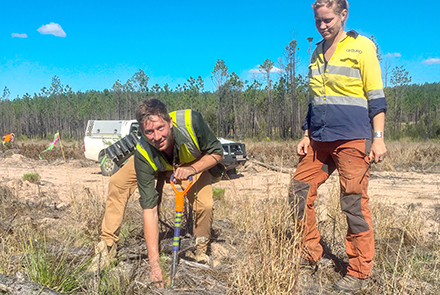The Australian Forest Products Association has commended the NSW Government for fast-tracking the replanting of the state’s softwood plantation areas, which were destroyed during the Black Summer Bushfires. Source: Timberbiz
Softwood plantations in NSW suffered massive damage during the fires. Around 35,000 ha of state owned, and 10,000 ha of private plantations were lost in the South West Slopes region, and significant damage also caused to plantations around Bombala and the Northern Rivers region.
The NSW Government has announced that it will be accelerating its winter planting program to an unprecedented 12,500 hectares per year for the next eight years. That means 12,500,000 new trees, each of them planted by hand, in the ground every year.
“We’re delighted the NSW government has adopted this approach,” AFPA Chief Executive Officer Ross Hampton said.
“The state’s forestry body Forest Corp is already expanding its nurseries to meet the increased capacity for seedlings. The accelerated planting program will start next winter when the seedlings being propagated now will be ready.”
The Chairman of the Softwoods Working Group Peter Crowe said the State government’s decision meant the replanting that would have been completed over 10 years will now happen over eight.
“That means a faster recovery for the State’s plantation estate, with private plantations also committed to significantly increase their replanting over the next two years,” Mr Crowe said.
“These softwood plantations will be able to produce useable timber earlier in fire-affected areas and replace the timber being harvested for processing. Both measures will aide in the industry’s long-term recovery.”
Mr Hampton said the commitment from the NSW government shows it was serious about investing in the timber industry to get it back on track.
“While the government is to be congratulated there is still much to be done in the months and years ahead to ensure the towns and villages dependant on forestry, remain economically vibrant regional communities,” he said.








